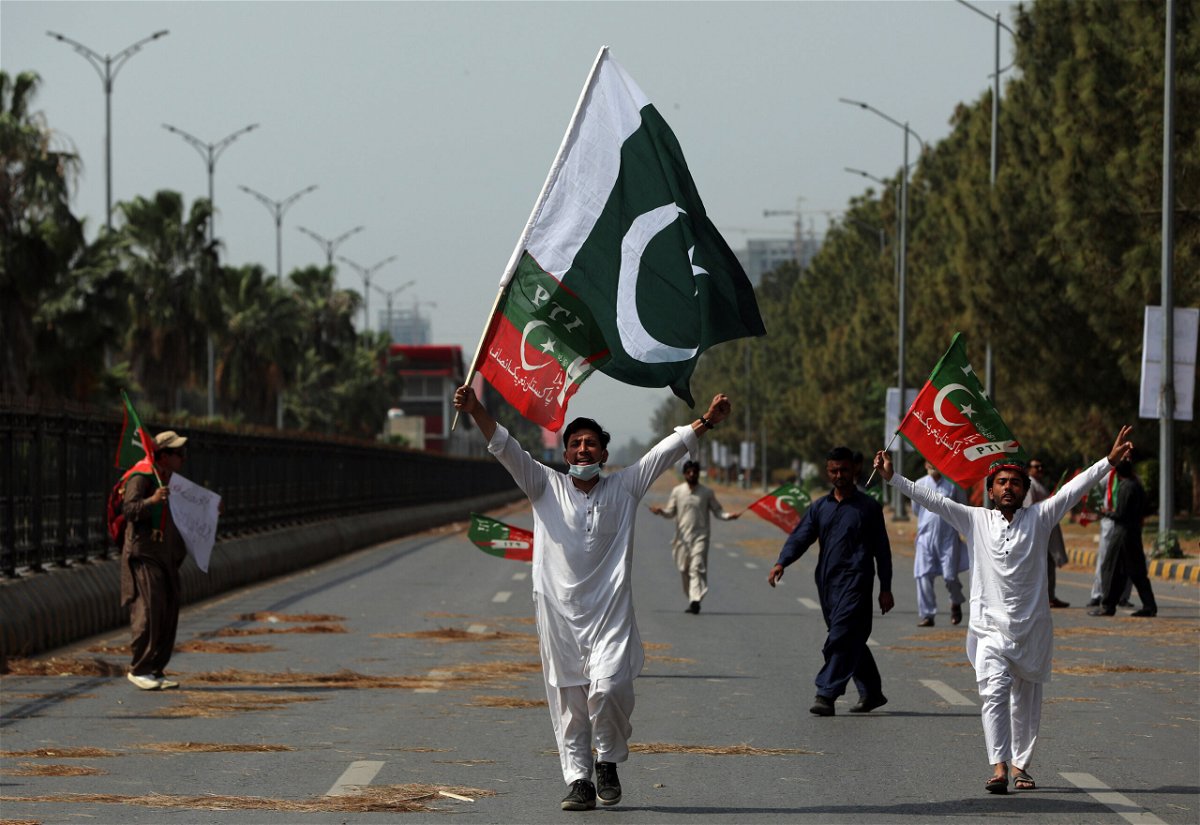Pakistan’s top court rules that blocking a no-confidence vote against Imran Khan was unconstitutional

Supporters of Prime Minister Imran Khan chant slogans during a protest in Islamabad
By Sophia Saifi and Rhea Mogul, CNN, and journalist Azaz Syed
Pakistan’s Supreme Court has ruled that a decision to block a vote of no-confidence against Prime Minister Imran Khan was unconstitutional, with legislators now set to vote on Saturday.
The Supreme Court reached the unanimous decision after special proceedings that stretched to four days while Khan and his loyalist President Arif Alvi had steamrolled a process to start early elections. The Supreme Court also quashed Khan’s order to dissolve parliament and call for early elections, calling it of “no legal effect.”
A vote of confidence for Khan will now be held on Saturday at 10:30am local (1:30a ET).
Khan had called the election in a dramatic attempt to cling to power after the deputy speaker of parliament blocked a vote of no-confidence against him last Sunday, which had appeared almost certain to succeed.
Deputy Speaker Qasim Khan Suri said that he had acted to prevent a ‘foreign conspiracy’ to unseat Khan’s regime.
That move, and Khan’s subsequent dissolution of parliament, enraged an opposition that for months have been demanding his removal over claims of poor governance and economic mismanagement.
The opposition responded by accusing Khan of treason and asking the country’s highest court to rule on whether the prime minister had breached the constitution.
The court battle is the latest escalation in a crisis that has been smoldering for weeks, with Khan already having lost the backing of key political allies and the country’s powerful military.
Military spokesperson Maj. Gen. Babar Iftikhar moved to distance the country’s military from developments in a statement Sunday, insisting it was not involved in what is “purely a political situation.”
Pakistan, a nation of 220 million, has struggled with political instability since its formation in 1947 with multiple regime changes and military coups. No prime minister has ever completed a full five-year term under the present constitution of 1973.
The country’s main opposition parties have been rallying for Khan’s dismissal since he rose to power in 2018 after an election mired in accusations of vote rigging and foul play.
More recently, he has been dogged by claims of economic mismanagement as his government battles depleting foreign exchange reserves and double-digit inflation, with the cost of basic necessities such as food and fuel skyrocketing.
Khan’s response has been to double down on claims that opposition to him is being fueled by the United States. He has not offered any evidence to support his claims, and the State Department has denied the allegations.
The-CNN-Wire
™ & © 2022 Cable News Network, Inc., a WarnerMedia Company. All rights reserved.